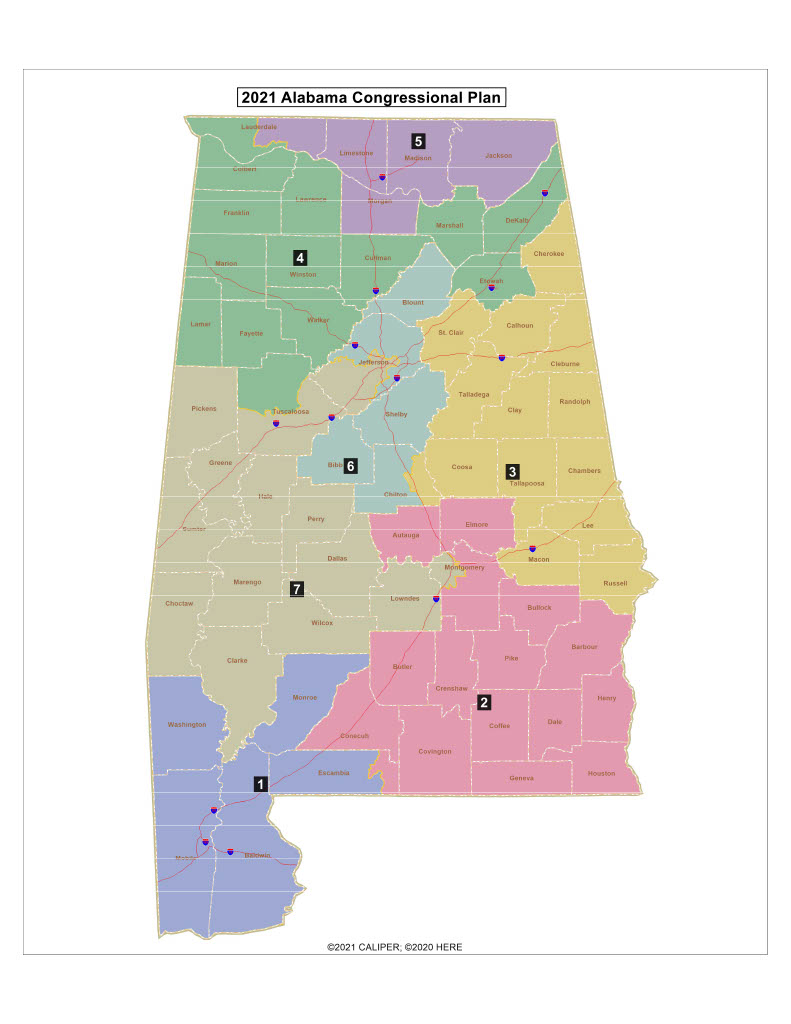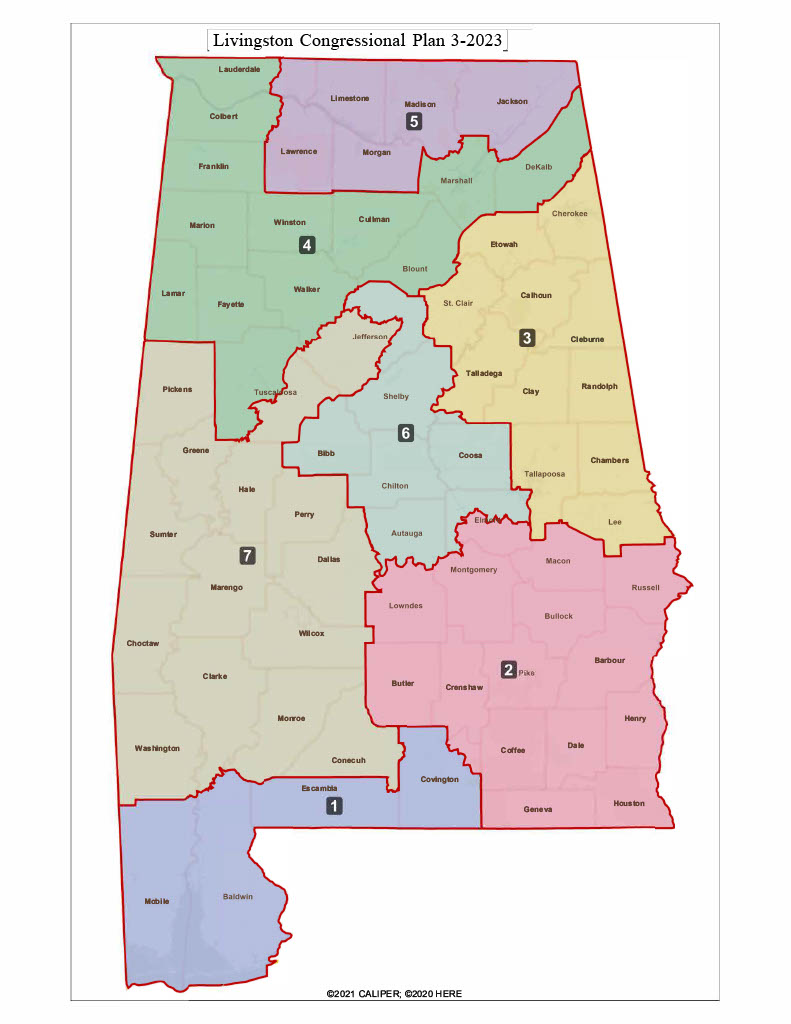Alabama Civil Rights Activist Secures US Supreme Court Voting Rights Victory
At 16 years old, Evan Milligan worked his first paid social justice job with the Federation of Child Care Centers of Alabama, a grassroots organization born out of the civil rights movement with a focus on improving the lives of low-income families in Alabama.
This was not the start of his long-standing devotion to civil rights, nor was it the end. He grew up surrounded by friends and family who doubled as community leaders, visionaries and activists. His relationship with civic engagement was cultivated at a young age.
Raised in Montgomery, Alabama – the site of numerous pivotal events during the civil rights movement – Milligan can’t pinpoint the exact moment he became interested in serving his community. Whether it was hearing stories from community elders about the struggles of growing up Black during the Jim Crow era or helping his mother hand out flyers for HIV/AIDS awareness, Milligan was constantly involved in his family’s advocacy.
“There wasn’t really a moment when we weren’t attached to the movement in some way,” he said. “With parents who were doing movement work in the ’60s and ’70s, all of that shaped how I was thinking and how I was feeling.”
Today, Milligan is carrying on his family’s legacy as executive director of Alabama Forward, a civic engagement network that has received over $300,000 in grants from the Southern Poverty Law Center’s Vote Your Voice initiative over the past two years. The grants enable nonprofits to work on a range of activities to secure full voter participation and achieve equitable representation.
He was also the named plaintiff in Allen v. Milligan, a case that resulted in a historic U.S. Supreme Court ruling that Alabama’s new congressional district map violated the Voting Rights Act (VRA) by diluting the votes of Black residents. The June 8 decision means that the state, where Black people comprise 27% of the population, must redraw the map to include a second majority-Black congressional district (out of seven total).
“At a time when states continue to enact discriminatory redistricting maps, this ruling reaffirms the Voting Rights Act’s essential role in countering efforts to dilute the voting strength of communities of color,” said Jack Genberg, senior staff attorney for voting rights at the SPLC.
Already, though, the state has defied the Supreme Court’s decision. Earlier this month, Alabama Republicans advanced proposals to boost the number of Black voters in one of the state’s seven congressional districts, but the plans fall short of the Supreme Court’s order to create a second majority-Black district or something close to it, voting rights advocates say. The fight now shifts back to federal court as state Republicans submit their new plan to the same three-judge panel that struck down the previous districts.
The case has national implications: It could affect the way that protections in the Voting Rights Act are applied to redistricting in other states.
The fight for fair representation continues.
Last year, Genberg helped draft an amicus brief in support of a revised congressional map after Alabama’s initial, racially gerrymandered map was struck down in the U.S. District Court. The SPLC, the League of Women Voters of Alabama, the League of Women Voters of the United States and Stand-Up Mobile filed the brief with the Supreme Court.
“We wanted to bring to the court’s attention information about the state of Alabama and its communities that we thought could assist the court’s determination that the second majority-Black district in the plaintiffs’ map was reasonably configured,” Genberg said.
Surprised by decision
The courts found that Alabama’s congressional map violated the VRA by “packing” the state’s Black population into just one congressional district, a long-standing gerrymandering tactic in the South. By doing so, the state diluted Black voters’ power to influence elections in other districts.
Milligan and the case’s other plaintiffs argued that by failing to include a second majority-Black congressional district, the state was in violation of Section 2 of the VRA. In January 2022, the U.S. District Court for the Northern District of Alabama ruled in their favor. Alabama appealed the decision, and the Supreme Court agreed to hear the case.
Like many observers, Milligan did not necessarily expect to come out on the winning side, given the 6-3 conservative majority on the court.
“There was some surprise because the court’s recent rulings had weakened the Voting Rights Act,” Genberg said. “We were concerned, based on the court’s recent history, that redistricting challenges under Section 2 of the VRA could be next.”
Despite securing an important win for voting rights in the South and beyond, Milligan knows that the fight for fair and equitable elections is not over.
“I wanted to create a situation where if we did win, that would be great, but where our entire strategy was not contingent upon that,” he said. “I don’t have that sort of orientation of the Supreme Court being this source of victory for our movement. What I was focused on was our agency. If we win or lose, what should we be doing?”
‘Not just about voting’
Milligan and Alabama Forward have outlined several goals for the immediate future, with hopes of making a larger impact in the years to come.
In the near term, Milligan wants to ensure passage of new maps for Alabama, featuring two majority-Black districts. Additionally, by the year 2030, Alabama Forward plans to continue promoting civic engagement in the state, with a goal of at least doubling the number of community members who are actively participating in the census, as well as to register voters and provide trainings to familiarize the community with civic involvement practices.
Focusing on the census and redistricting is vital, because all political jurisdictions adopt voting maps every 10 years based on demographic changes reflected in the most recent census.
“We don’t just want to start in 2030, but to do it between now and then, so that once redistricting starts in 2031, the information that goes to the state is even more compelling,” Milligan said. “It is certainly compelling for people on the ground level and in the communities when they see their communities represented in that fashion.”
As a 2022 recipient of a Vote Your Voice grant, Alabama Forward has already begun working toward realizing these goals and, in turn, helping create a more equitable South.
“The Southern Poverty Law Center has been an institutional partner with respect to our ability to provide subgrants to our member groups and also regarding our ability to innovate creative engagement strategies,” Milligan said.
He cited Alabama Forward’s recent summit and festival, Democracy: Now or Never. The event, held for the first time this past June, featured workshops and assemblies for the Montgomery community. Milligan also mentioned the Shake the Field project, which aims to increase civic engagement in Alabama.
“The Vote Your Voice grant has increased the capacity of groups on the ground,” he said.
Now, more than ever, Milligan is envisioning a future where “pro-democracy values permeate every sector of Alabama’s society.”
“In schools, work, family, neighborhoods, state government, any of our federal positions, local government – it’s not about just voting,” he said. “It’s about the idea that people can have disagreements and have various strong, stridently different opinions but still work towards a common goal. We need democracy in order for diversity to work.”
Photo at top: Evan Milligan outside of his home in Montgomery, Alabama. (Credit: Demetrius Freeman/The Washington Post via Getty Images)


